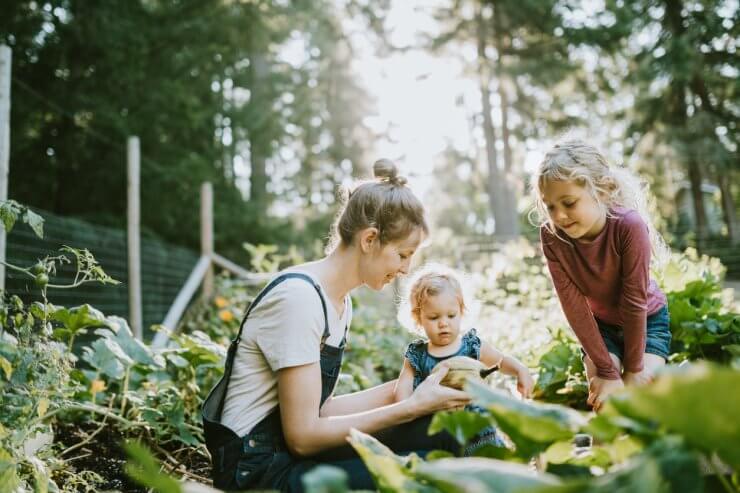
My first garden was a failure. Aside from a few herbs, I literally harvested nothing except for three tomatoes. The zucchini plant died before it produced any fruit. The basil was plagued by pests of some sort. I’m pretty sure the neighborhood skunks and rabbits ate every strawberry that looked like it might ripen soon. I didn’t know much more about gardening than I had to pull weeds and give it water. I didn’t know when to plant seeds, how to prep the soil, or even what would grow in the area I had chosen for the garden.
It was a disappointing experience. And thankfully, I’ve learned a bit since then. For one, gardening is a journey. No two seasons are the same and there’s a lot that’s out of your control. However, there is also a lot that is within your control, and learning when to plant seeds is the first of several of those items.
Discover 7 top tips for growing, harvesting, and enjoying tomatoes from your home garden—when you access the FREE guide The Best Way to Grow Tomatoes, right now!
Learn when to plant seeds and enjoy a happy garden all season
The biggest problem in determining when to plant seeds is that they are all based on the approximate date of the last frost. So what works in North Carolina won’t work in Minnesota. For that matter, even in the same region, higher elevations can have later frost dates than areas closer to sea level. So….
1. Figuring out when to plant seeds. Here’s the good news; most of those frost-related planting days are based on starting seeds indoors. That’s certainly a good way to get your garden started early and prolong your growing season by a few weeks, but it can be a lot of work. That said, some vegetables, like tomatoes, really do need to start growing indoors. Others, like most root vegetables for example, prefer to go right into the ground as seeds.
But when to plant seeds? If you’re sticking strictly to outdoors, it really can vary. Some vegetables like leaf lettuce, kale, and beets, to name a few, like the cool weather of early spring. You can generally plant these seeds as soon as the soil is workable. For a lot of the country, that’s around mid-to-late March. Those of you in the deep south can probably start your early vegetables as early as January! However – and this is very important – read the information on your seed packets. Even though some seeds and seedlings do fine with a late season frost or snow, that kind of weather will absolutely ruin any vegetables that you plant too early. Don’t ask me how I know; just trust me on this.
2. Prep the soil. Aside from knowing when to plant seeds, the condition of your soil can play a huge role in how well your garden does. Dense, packed soil will make it hard for your plant roots to breathe, while rocky soil can interrupt root growth. And, of course, soil that is depleted of nutrients will limit plant growth.
There are a few simple things you can do that will improve the health of your garden soil. If you have access to compost, working that into the soil will do wonders for your garden. Use a garden fork to dig into the dirt and spread the compost around, then work it into the soil. Don’t worry if it’s not perfect; this is definitely one of those “good enough” moments. Even just digging through the soil with a garden fork will help loosen things.
3. Water the soil, not the plants. There’s nothing wrong with giving your plants a spritz on a hot summer day, but for the most part, it’s the soil that needs the water. For that matter, don’t overwater your vegetables, either. A good rule of thumb is to water more deeply and less frequently.
4. Consider your location. Plant your garden in a spot that gets as much sunlight as possible. A somewhat sheltered location is great, too, though not always possible. It’s also important not to overdo things. Smaller gardens mean less maintenance!
5. Plant some flowers. Seriously. I know you want vegetables, but flowers such as marigolds and nasturtiums can be great companion plants. They attract beneficial insects that help pollinate your veggies and eat garden pests like aphids. They’re also really pretty.
Good luck with your garden, and congratulations on starting the journey. I hope you find gardening to be a relaxing and rewarding experience.
What do you most struggle with as a new gardener? Leave your thoughts in the comments and let’s see if we can all help each other out.
Discover 7 top tips for growing, harvesting, and enjoying tomatoes from your home garden—when you access the FREE guide The Best Way to Grow Tomatoes, right now!



